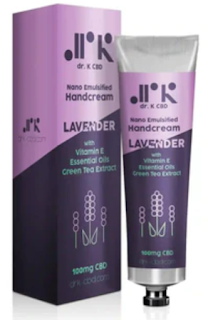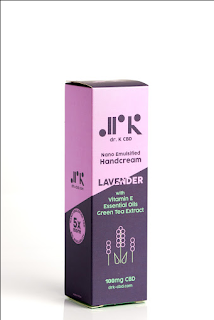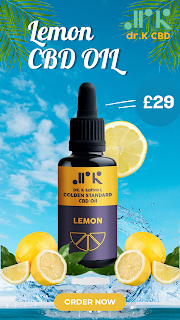Why Do I Need a Hand Emulsifier and What Is It | Dr. K CBD
We are aware that you enjoy creating wonderful essential oil DIY projects for your loved ones and friends. Additionally, we are aware that you turn to us for reliable information and healthy meals. However, occasionally you can stumble upon an ingredient and be curious to learn more about it.
Those substances are frequently either preservatives or Hand Emulsifiers, both of which are essential to the preservation of some of your homemade treats! You can read more about preservatives here, but we'll focus on Hand Emulsifiers today so you may utilize them with confidence in your products and recipes.
what is A Hand Emulsifier?
Water and oil don't mix. Essential oils, which are accurately described as hydrophobic liquids, fall under this category as well. Despite your
best efforts, essential oils and water cannot be combined. Even if they are entirely cut off from the water, tiny, concentrated oil droplets will still float to the surface.
When a DIY recipe calls for water and essential oils, this is cause for alarm (or water-based products, like hydrosol). Since the essential oil is essentially just resting "neat" on the water, using them in this way might have major negative health effects. Water cannot dilute the oil, which is what is needed. Even if you dilute your essential oils in a carrier oil, the oils will still be sitting directly on top of the water, putting you right back where you started.
A hand Emulsifier can be useful in this situation. For DIY projects, blending essential oils effortlessly is a crucial component.
A Hand Emulsifier is a substance that combines ingredients with water and oil bases. Because the molecules in the Hand Emulsifier will cling between the oil molecules and the water molecules to keep them bonded together, the fluids stay uniformly dispersed among one another.
Do You Need an Emulsifiers All the Time?
Not every DIY project will require an emulsifier. For instance, there is no need for an emulsifier if your recipe only asks for combining certain essential oils with a carrier oil. Since there is no water-based product to produce separation, the carrier will dilute the oil. The same is true when putting essential oils in butter or lotion.
You could be eager to attempt numerous recipes that call for water, though. A water-based product is frequently the major component of DIY sprays, whether they are intended for the skin, hair, linens, or air. As a result, they require an emulsifier. This is particularly valid for any DIY that involves applying something directly to the skin or scalp. Never take the chance of coming into contact topically with undiluted essential oil. Here is additional information on that (dilution blog).
Frequently Employed Emulsifiers
There is a large selection of commercial and natural emulsifiers available on the market. Although by no means exhaustive, the following options may be taken into consideration for your upcoming project:
Hemp Oil UK
If alcohol is used, it need not be 100 percent alcohol, but it should be the highest proof you can find. Grain alcohol, like Everclear, which is 95% alcohol if you buy 190 proof, is often recommended. Alcohol has unparalleled evaporative properties that make it ideal for room and linen sprays, but when applied topically, it can be drying. Check out this blog post to learn more.
20 Polysorbate
a great option for recipes requiring water, such as sprays, body mists, air fresheners, and bug sprays. It doesn't cause acne. The number "20" denotes the monolaurate kind of fatty acid that was utilized as the base in this instance.
Ideal for emulsifying heavy material, such as Hemp Oil UK, is polysorbate 80. It's perfect for bath bombs and other items that use mica coloring because it won't cause stains in the tub and will leave a less slippery surface. It doesn't cause acne. The "80" designates the monooleate fatty acid.
Carrier oils: do they emulsify?
Although they are not technically emulsifiers, Hemp Oil UK is excellent for the dilution of essential oils. Carrier oils are unable to emulsify something, which is to have it combine smoothly with water molecules. For instance, since the molecules in Hemp Oil do not bind to water molecules, there will still be some droplets that cannot completely blend in the water if essential oils are added to Hemp Oil UK and water.
Our Aloe Vera Jelly follows a similar philosophy. Our Aloe Vera Jelly already contains an emulsifier, however, it is not regarded as an emulsifier in and of itself. You will probably still need to add an emulsifier to any aloe vera gel. For more information, we advise looking at the ingredient list or getting in touch with the gel maker.
Another example of a product that contains an emulsifier but is not itself an emulsifier in lotion. So, we advise you to use an emulsifier if your recipe calls for both a lotion and a water-based product.
What Is Not Advisable for Emulsification?
Three of the most typical components used in many DIY projects are water, witch hazel, and honey. Contrary to popular perception, they should not be used to dilute essential oils or as an emulsifier. We know from elementary science that water and oil do not mix. Since it is mostly made of water, witch hazel cannot contain essential oils. Alcoholic witch hazel is available, but the amount is insufficient to emulsify or dilute the essential oils. When used alone, honey can effectively store essential oils, but when water is added and the honey dissolves, the Hemp Oil UK is left undiluted because the honey is no longer able to keep them. Other typical DIY components that shouldn't be used as emulsifiers or to dilute essential oils are listed below.
Clay, bentonite
CORN SODA
Vegetable Glycerin
Rough Alcohol
Oil of Vitamin E
It will take some independent investigation for you to determine which emulsifier is best for you. Emulsifiers come in a variety of forms and contain a range of chemicals. You must choose whether a particular ingredient is the best option for you and your family.
Shop Now CBDThe highest and harshest level for CBD agriculture, CBD regulations, have certified our farmers as organic farmers. To ensure that our goods are of the greatest caliber and purity, the oils are produced by the strictest EU manufacturing practices guidelines.






Comments
Post a Comment